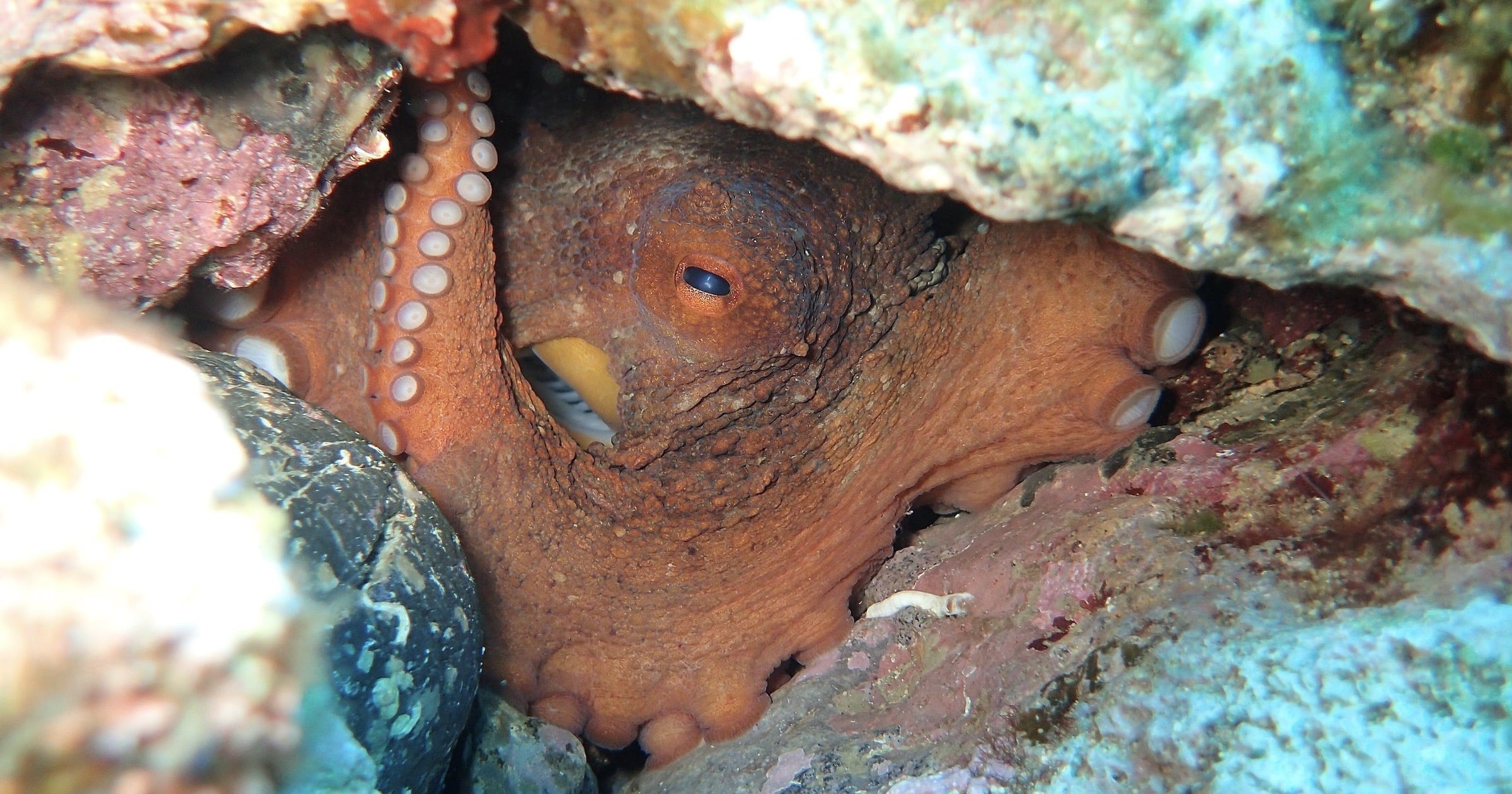 Intelligent Design
Intelligent Design
 Neuroscience & Mind
Neuroscience & Mind
How Octopuses Got So Smart? “Junk DNA”

The fact that octopuses are unusually intelligent (like mammals) — even though they are solitary invertebrates — means that they now receive some protection against cruelty. Protection that no one bothers about for, say, clams and oysters.
But the science puzzle remains. How did octopuses and some of their close kin among the cephalopods get to be so intelligent? Theories about how mammals and birds got to be smart may not work here.
A recent paper adds a little more information to the controversy. Studying the common octopus and the California octopus, researchers found that the same “jumping genes” are active in the octopus brain as in the human one — even though the two types of brain are very different. Jumping genes, of which there are many types, can move from one place in the genome to another:
Among these mobile elements, the most relevant are those belonging to the so-called LINE (Long Interspersed Nuclear Elements) family, found in a hundred copies in the human genome and still potentially active. It has been traditionally thought that LINEs’ activity was just a vestige of the past, a remnant of the evolutionary processes that involved these mobile elements, but in recent years new evidence emerged showing that their activity is finely regulated in the brain. There are many scientists who believe that LINE transposons are associated with cognitive abilities such as learning and memory: they are particularly active in the hippocampus, the most important structure of our brain for the neural control of learning processes.
INTERNATIONAL SCHOOL OF ADVANCED STUDIES (SISSA), “OCTOPUS BRAIN AND HUMAN BRAIN SHARE THE SAME ‘JUMPING GENES’” AT PHYS.ORG (JUNE 24, 2022); THE PAPER IS OPEN ACCESS.
These sorts of genes used to be dismissed as “junk DNA” which in turn was held to be slam-dunk evidence for unguided evolutionary processes. But in recent years, quite a lot of this “junk” has turned out to make a good deal of difference.
Read the rest at Mind Matters News, published by Discovery Institute’s Bradley Center for Natural and Artificial Intelligence.
